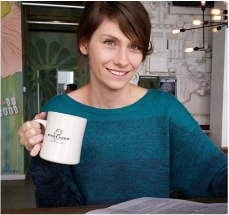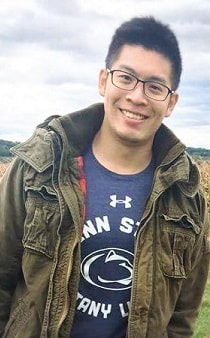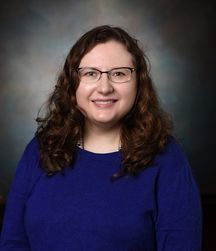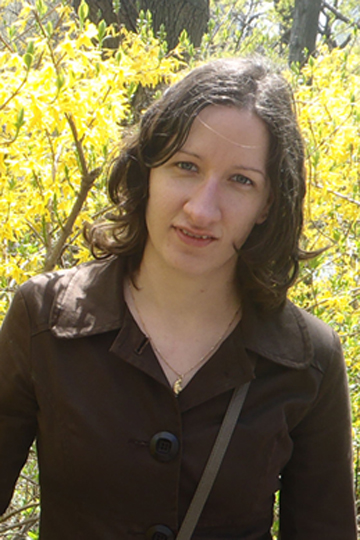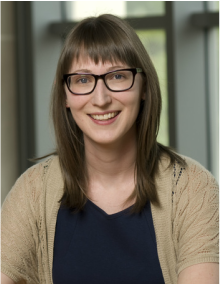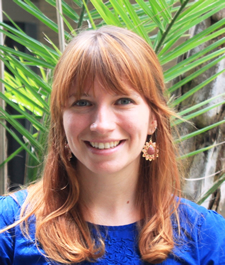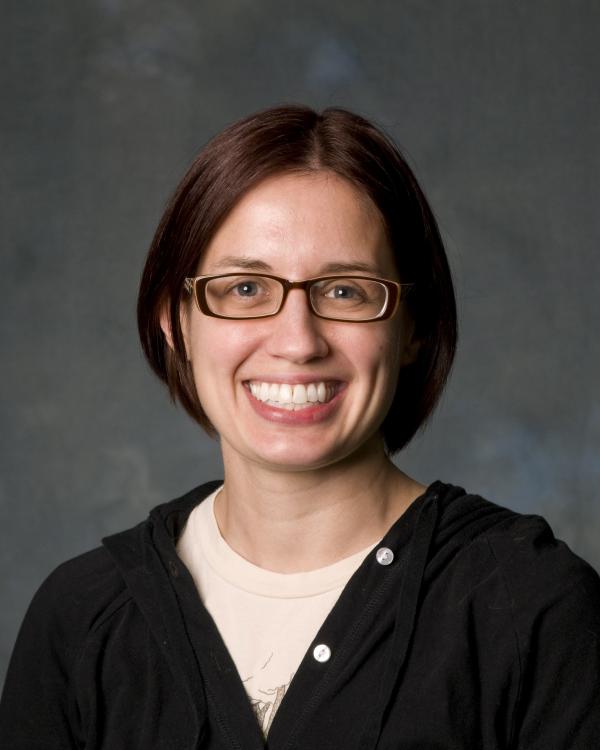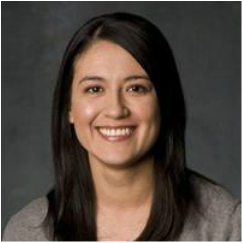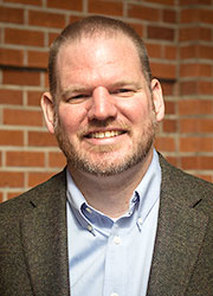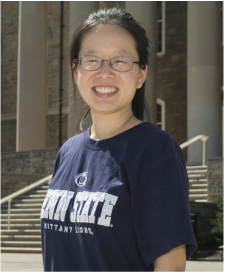Dr. Martin J. Sliwinski

My research examines how aspects of everyday experiences influence a person’s ability to memorize, reason and concentrate. Specifically, I am interested in linking micro-level processes (e.g., everyday stress, affect, rumination) to long-term changes in mental, physical and cognitive health. My current research falls into three general areas.
First, I am interested in the developmental pathways leading from stressful experiences to cognitive impairment in middle and older aged adults. A theoretical model guiding this research links environmental influences (e.g., daily stressors, life events) to physiological dysregulation and cognitive decline via ruminative processes (e.g., intrusive thoughts). This model offers mechanisms to explain how stress can influence cognitive function across different time scales, ranging from moments within a day to years.
Second, I'm interested in developing tools for ambulatory assessment of cognitive function in daily life and measurement of cognitive change over longer intervals. Traditional measurement approaches rely on objective (performance based) and subjective (self-report) assessments of cognition made in clinic or interview settings on a single occasion. Unmeasured sources of within-person variability, retrospective reporting biases and the artificial nature of standard testing environments negatively impact test reliability, measurement accuracy, and ecological validity of standard approaches to cognitive assessment. These problems impede the sensitive measurement of cognitive change and delay detection of clinical conditions, such as mild cognitive impairment (MCI), Alzheimer's disease and other types of dementia. To address these problems, we use mobile technology to embed brief cognitive assessments into ecological momentary assessment (EMA) and daily diary designs.
First, I am interested in the developmental pathways leading from stressful experiences to cognitive impairment in middle and older aged adults. A theoretical model guiding this research links environmental influences (e.g., daily stressors, life events) to physiological dysregulation and cognitive decline via ruminative processes (e.g., intrusive thoughts). This model offers mechanisms to explain how stress can influence cognitive function across different time scales, ranging from moments within a day to years.
Second, I'm interested in developing tools for ambulatory assessment of cognitive function in daily life and measurement of cognitive change over longer intervals. Traditional measurement approaches rely on objective (performance based) and subjective (self-report) assessments of cognition made in clinic or interview settings on a single occasion. Unmeasured sources of within-person variability, retrospective reporting biases and the artificial nature of standard testing environments negatively impact test reliability, measurement accuracy, and ecological validity of standard approaches to cognitive assessment. These problems impede the sensitive measurement of cognitive change and delay detection of clinical conditions, such as mild cognitive impairment (MCI), Alzheimer's disease and other types of dementia. To address these problems, we use mobile technology to embed brief cognitive assessments into ecological momentary assessment (EMA) and daily diary designs.
Current Lab Members
Postdoctoral Scholars
Jessie Alwerdt
|
Jessie is a Postdoctoral Scholar at Penn State. Her research focuses on health behaviors in older adults in association with cognition and modifiable risk factors. Jessie earned her Bachelor of Science in Psychology from Southern Illinois University of Edwardsville, and her M.S. in Neuroscience and Aging and Ph.D. in Aging Studies from the University of South Florida.
Jessie enjoys backpacking, traveling, anything outdoors, and lots of coffee. Email her at [email protected] or visit her website, www.jessiealwerdt.com |
Ruixue Zhaoyang
|
Ruixue is a Postdoctoral Scholar at Penn State. Her research focuses on the association between close relationships and health within daily activities and across the lifespan. Ruixue earned her Bachelor of Science and Master of Arts degrees in Social Psychology from Nankai University, China, and her Ph.D. in Social/Personality Psychology from University of Missouri.
Ruixue enjoys traveling, hiking, cooking, and hanging out with friends and family. |
Nelson Roque
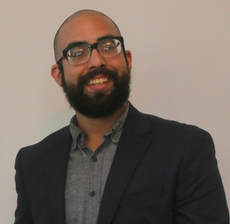
Nelson is a T32 Postdoctoral Fellow with Penn State’s Center for Healthy Aging. He has a special interest in visual attention, focusing on: how to reliably measure it, how it relates to individual difference factors (e.g., age, stress, sleep) and translating insights from theoretical work in visual attention, to applied contexts (e.g. medication errors). With a background in Human Factors and cognitive aging interventions, he is also interested in understanding the factors that promote technology adherence (e.g., usability, proficiency). Nelson earned his B.S. in Psychology (with a minor in Child Development), his M.S. in Cognitive Psychology, and his Ph.D. in Cognitive Psychology, from Florida State University.
Nelson enjoys hiking, flying drones, and programming (<3 R, Python).
Email him at [email protected], or visit his website, nelsonroque.com
Nelson enjoys hiking, flying drones, and programming (<3 R, Python).
Email him at [email protected], or visit his website, nelsonroque.com
Graduate Students
Shang-Ti Chen
|
Shang-Ti is a fourth-year doctoral student in Recreation, Park, and Tourism Management at Penn State. His research interests center on the general questions of how daily or momentary life events (e.g., enjoyable activities, positive events) influence mental and cognitive health. Shang-Ti received a Bachelor of Science in Kinesiology, Health and Leisure Studies from National University of Kaohsiung and a Master of Science in Sports and Health from National Changhua University of Education, Taiwan.
Email him at [email protected] or visit his website |
Jee-eun Kang
|
Jee eun is a third-year doctoral student in Human Development and Family Studies at Penn State. Her research is focused on psycho-social factors that influence health and well-being. She is particularly interested in the effects of social isolation and loneliness on cognitive health as one ages. Jee eun earned her Bachelor of Science degrees in Consumer and Child Studies as well as Business Administration and her Master of Arts degree in Child Development and Family Studies from Seoul National University, Korea.
Jee eun enjoys exercise, cooking and spending time with friends and family. Email her at [email protected]. |
Staff
Heidi M. Baron
|
Heidi earned her Bachelor of Arts degree in Sociology from the University of Massachusetts-Amherst. She has extensive experience working on many projects, including the ESCAPE Study. She has been employed as a Research Technologist at the Center for Healthy Aging since October, 2013.
Heidi enjoys music and travel outside of work. |
Emily M. Repka (Fidler)
|
Emily earned her Bachelor of Science degree in Human Development and Family Studies from Penn State in 2011. Since then, she has been employed as a Research Technologist at the Center for Healthy Aging where she has been involved in a number of projects, including the ESCAPE Study.
In her spare time, Emily enjoys getting lost in a good book, attending craft fairs, and watching reruns of The Golden Girls. |
Former Lab Members
Past Postdoctoral Scholars
Judith Gere, Ph.D.
|
Judith earned her Ph.D. in Social/Personality Psychology at the University of Toronto and completed a one-year postdoctoral fellowship at the Center for Healthy Aging at Penn State University. She is now an Assistant Professor in the Department of Psychological Sciences at Kent State University in Kent, OH.
|
Rachel C. Hemphill, Ph.D.
|
Rachel earned her Ph.D. in Experimental Social/Health Psychology at Kent State University (2013) and completed a two-year postdoctoral fellowship at the Center for Healthy Aging at Penn State University. She is now a Program Officer in the Evaluation and Analysis department at the Patient-Centered Outcomes Research Institute (PCORI) in Washington, DC.
|
Stacey B. Scott, Ph.D.
|
Stacey earned her Ph.D. in Developmental Psychology at the University of Notre Dame (2009). She completed a postdoctoral fellowship at Georgia Institute of Technology, was a Research Associate at the Center for Healthy Aging at Penn State University, and an Assistant Professor in the School of Aging Studies at the University of South Florida in Tampa. She is now an Assistant Professor in the department of Psychology at Stony Brook University.
|
Past Graduate Students
Jacqueline A. Mogle, Ph,D.
|
Jacquie earned her Ph.D. in Experimental Psychology at Syracuse University. She worked as a Research Scientist and then a Research Assistant Professor at the Center for Healthy Aging at Penn State University. She is now an Assistant Professor in the College of Nursing at Penn State University in University Park.
|
Elizabeth Munoz, Ph.D.
|
Liz earned her Ph.D. in Human Development and Family Studies at Penn State in August, 2015. Her research interests included studying the association between personality and chronic stress on cognitive function, examining psychological mediators of these associations, and examining these links among Hispanic/Latino adults. She is currently serving as a postdoctoral scholar at University of California Riverside’s Biobehavioral Research Lab under the mentorship of Dr. Chandra Reynolds.
|
Robert Stawski, Ph.D.
|
Robert earned his Ph.D. in Experimental Psychology at Syracuse University (2006). He completed a National Institute of Mental Health postdoctoral fellowship at the Department of Human Development and Family Studies at Penn State University and was a Research Associate at the Center for Healthy Aging at Penn State University (formerly the Gerontology Center). He is currently an Associate Professor in the School of Social and Behavioral Health Sciences at the Oregon State University in Corvallis.
|
Jinshil Hyun, Ph.D.
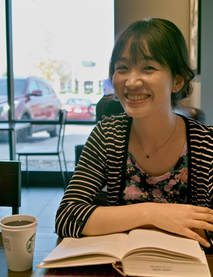
Jinshil earned her Ph.D. in Human Development ad Family Studies at Pennsylvania State University (2018). Her broad research interests center on understanding the relationships between modifiable risk/protective factors and cognitive health. She is currently serving as a postdoctoral scholar at Albert Einstein College of Medicine. Email her at [email protected] or visit her website (https://jhyun.weebly.com/)
Past Undergrad Students
Sharon Qi
|
Sharon earned her Bachelor of Science degree in Health Policy and Administration at Penn State. During her time at the lab, she wrote a literature review that later won the national Francis G. Caro Student Paper Award at the undergraduate level. Sharon is currently working towards her master’s in accounting degree at Penn State Smeal College of Business.
For fun, Sharon enjoys cooking and going on nature walks. She also enjoys spending quality time with her friends and family. |
